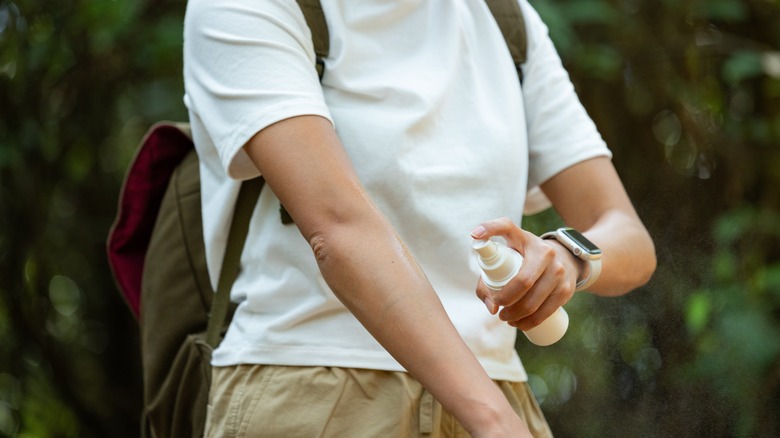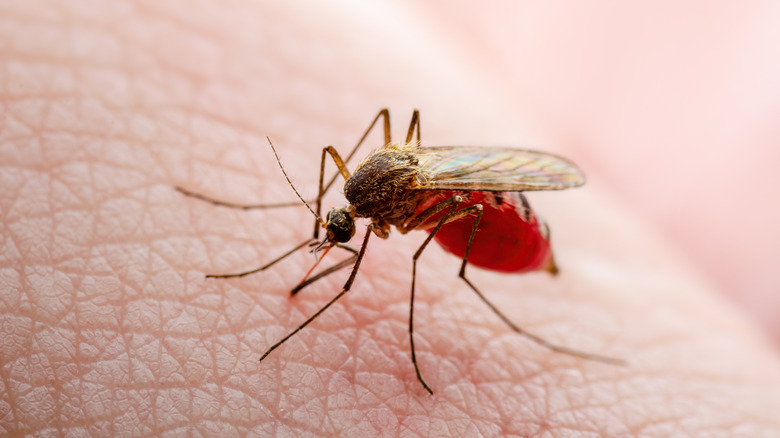How To Use This Pantry Staple To Ensure A Bug And Chemical-Free Camping Experience
So, you've set up your tent and are sitting comfortably in your camp chair while eating a fire-cooked meal and taking in an incredible view. Then, suddenly, the bugs arrive. Now, at best, you can take in the view while being pestered by insects, or, at worst, you will have to run inside your tent and miss the scenery to escape a swarm of irritating bloodsuckers. It gets even worse if you are unable to keep the bugs out of your tent and are stuck battling buzzing gnats or creeping spiders all night. Luckily, if you aren't a fan of commercial insect repellents, which often contain harsh chemicals, there is an easy and natural solution — vinegar.
In fact, normal white vinegar (which is something you probably already have in your cupboard) works well to repel common annoying insects like ants, mosquitos, and spiders. Vinegar does the trick because these insects dislike the strong, tangy smell of the liquid. So, as long as you don't mind the smell, you can use this natural and affordable cooking ingredient as an easy line of defense on your next camping trip.
How to use vinegar to keep the creepy crawlies away
There are a few ways you can implement vinegar to protect yourself from bugs. The first is to create a spray that can be applied to your skin, clothes, or the fabric of your tent. However, whenever you make a vinegar spray, you should dilute the vinegar with one part water so as not to irritate your skin and prevent stains on clothing.
If you dislike the smell of classic white vinegar, you can also use apple cider vinegar, which has a slightly less acrid scent. You can also add a few drops of essential oil to the vinegar. It's a good idea to choose an essential oil that also tends to repel insects (like peppermint, thyme, citronella, or lavender). Another option is to infuse your vinegar with insect-repelling herbs. To do this, simply place your dried herbs (thyme, rosemary, lavender, mint, and sage are all good choices) in a jar of vinegar and let the concoction sit for a couple of weeks before straining, diluting with water, and then using.
Downsides of using vinegar to repel bugs
Like many natural insect repellents, vinegar is not the perfect solution. The biggest downside of using vinegar as a bug repellent is that it doesn't last very long and needs to be reapplied often. Usually, the smell (and effectiveness) of vinegar disappears when it's dry which can take anywhere from 30 minutes to one hour. Furthermore, it is not as effective at preventing mosquito bites as DEET and other chemical options. Because of this, vinegar is not recommended by the CDC for use against mosquitos. However, there are some other natural scents that are scientifically proven to repel mosquitos and recommended by the CDC, such as the oil of lemon eucalyptus (OLE).
The other downside is that vinegar doesn't repel all insects. For example, it does nothing against roaches and may even attract fruit flies. Because of this, you may want to bring a mix of natural insect-repellent options — like vinegar and vanilla extract and see which one works best for you. Furthermore, because mosquitos can carry diseases, you should always bring a backup chemical insect repellent with you just in case.


